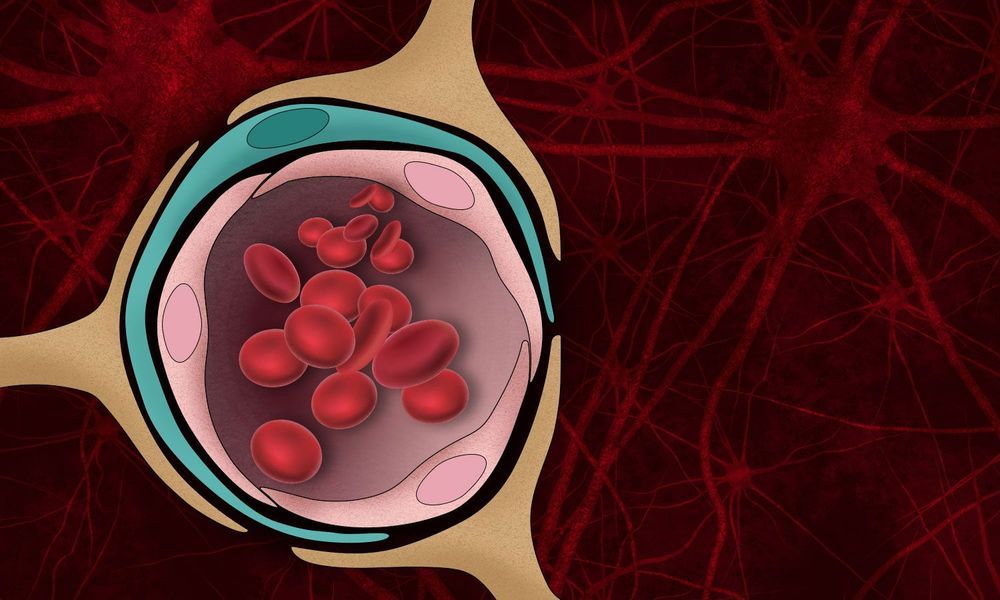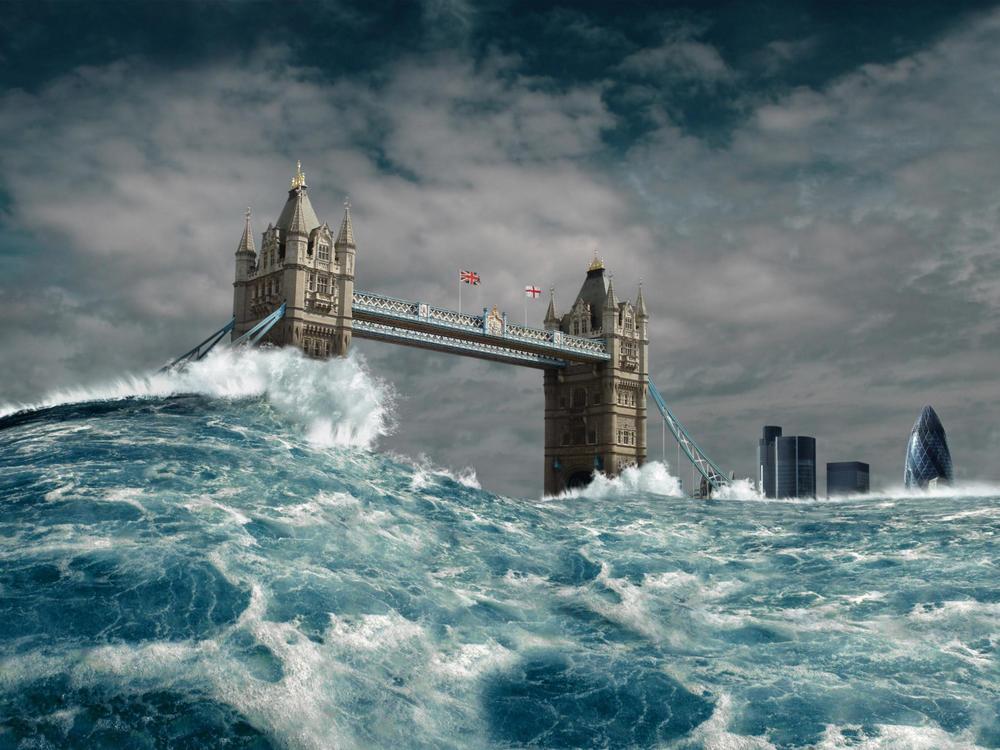Study finds that Alzheimer’s damage allows toxins to enter the brain, further harming neurons.



Aren Jay shared this cogent article to my Timeline… It is not new even Hippocrates was able to determine that the gut causes and or assists in all diseases. But the 19th and 20th centuries researchers began saying that microbes are good for mankind which sent science reeling through generations until this day… Respect r.p.berry & AEWR wherein we have developed a formula and Algorithm that deals with this very serious problem completely. A very expensive cure but one that will take Woman-Man past the Escape Velocity so many have written about…
Today, we’re offering another discussion from Ending Age-Related Diseases 2019, our highly successful two-day conference that featured talks from leading researchers and investors, bringing them together to discuss the future of aging and rejuvenation biotechnology.
Today, we’re offering another talk from Ending Age-Related Diseases 2019, our highly successful two-day conference that featured talks from leading researchers and investors, bringing them together to discuss the future of aging and rejuvenation biotechnology.
Ronald Kohanski, Deputy Director of the Division of Aging Biology at the National Institute of Aging, gave a talk entitled Concepts and Perspectives in Geroscience. He discussed the ways in which aging affects systems and cells, the problems with using lifespan as an endpoint, the concept of resiliency, parabiosis, telomeres, unexpected effects at a distance with regards to interventions, and several in-depth concepts relating to the aging of specific cell types, such as muscle and brain cells.

A Luxembourg company is working to develop 3D printers which will create human skin on board a spaceship while out in space.
Space company, Blue Horizon, based in Betzdorf, is working with German company OHB SE – of which it is subsidiary –and the Technical University of Dresden to develop the printers.
Harvard University researchers have developed a new powered exosuit that can make you feel as much as a dozen pounds lighter when walking or running. Scientific American reports that the 11-pound system, which is built around a pair of flexible shorts and a motor worn on the lower back, could benefit anyone who has to cover large distances by foot, including recreational hikers, military personnel, and rescue workers.
According to the researchers, who have published their findings in the journal Science, this system differs from previous exosuits because it’s able to make it easier to both walk and run. The challenge, as shown by a video accompanying the research, is that your legs work very differently depending on whether you’re walking or running. When walking, the team says your center of mass moves like an “inverted pendulum,” while running causes it to move like a “spring-mass system.” The system needs to be able to accommodate both of them, and sense when the wearer’s gait changes.


Stanford engineers have developed a new type of wearable technology called BodyNet that detects physiological signals emanating from the skin. The novel tech consists of wireless sensors that stick like band-aids and beam readings.
A body area sensor network (bodyNET) is a collection of networked sensors that can be used to monitor human physiological signals. For its application in next-generation personalized healthcare systems, seamless hybridization of stretchable on-skin sensors and rigid silicon readout circuits is required. Here, we report a bodyNET composed of chip-free and battery-free stretchable on-skin sensor tags that are wirelessly linked to flexible readout circuits attached to textiles. Our design offers a conformal skin-mimicking interface by removing all direct contacts between rigid components and the human body. Therefore, this design addresses the mechanical incompatibility issue between soft on-skin devices and rigid high-performance silicon electronics. Additionally, we introduce an unconventional radiofrequency identification technology where wireless sensors are deliberately detuned to increase the tolerance of strain-induced changes in electronic properties. Finally, we show that our soft bodyNET system can be used to simultaneously and continuously analyse a person’s pulse, breath and body movement.

US based Phononic’s thermoelectric technology is proving truly disruptive in the usually staid world of cooling technology.
When it comes to cooling technologies it’s fair to say that not a lot has changed in the past 100 years. Today, however, Phononic, a US company based in North Carolina, is using solid-state microchips to reinvent how devices are cooled.
“Over the past 50 years, semiconductors have totally transformed areas as diverse as data, communications, solar power and LED lighting,” says Alex Guichard, senior products marketing manager, Phononic. “Today, we’re using thermoelectric coolers to offer a radical alternative to traditional forms of cooling technology.”

Ellen Swallow Richards was not going to be intimidated by a room full of health experts and officials. Children were dying and their parents, Boston’s taxpayers, and city officials were to blame. The tiny, square-chinned woman thought nothing of climbing over boulders in petticoats, collecting thousands of water samples by horseback, or exploring mines on her honeymoon. So when she took the podium at the 1896 meeting of the American Public Health Association, she wasted no time in laying out her evidence.
More than 5,000 cases of illness could be attributed to the illegal conditions in Boston’s public schools, she said. Buildings lacked ventilation. Sewer pipes were still open. Toilets were filthy. Some 41 percent of the floors had never been washed. Only 27 of the city’s 168 schools had fire escapes that worked. Fully half of Boston’s schoolhouses were “deleterious to health.” The public and parents should be charged with “the murder of some 200 children per year,” Richards declared, their deaths entirely preventable from environmental hazards.
The strident, accusatory tone of Richards’ speech was remarkable, given how tactful she had been in the first two decades of her career. That tact had been a coping strategy, characteristic of a pragmatic feminism. Richards had been the first woman admitted to the Massachusetts Institute of Technology and the university’s first woman instructor. To blend in, she made a conscious effort to appear as unthreatening and feminine as she possibly could to her male colleagues. She even mended their clothes when they asked.